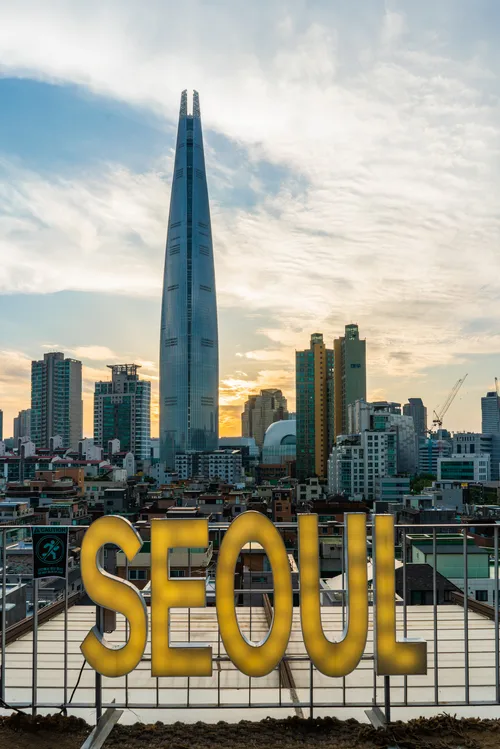Ghanaians Abroad: Solomon in South Korea
- akadimag

- Jul 21, 2020
- 4 min read
Updated: Jul 26, 2020
Solomon Ansah moved to South Korea to deepen his engineering experience. He talks about the parallels between Ghanaian and South Korean culture and explains how a new way of learning has given him knowledge to tackle ‘dumsor’ in the Motherland.

What inspired you to leave Ghana and go to South Korea?
Actually, South Korea isn’t the first country I travelled to. I have visited South Africa and Ethiopia. But close to two years ago, I was motivated to move to South Korea to continue my education.

What is your academic background?
I have a first degree in materials engineering from Ghana. I decided to further my education in South Korea to learn more about they are advancing in technology and setting pace in a number of engineering inventions and discoveries. I am studying MEng Materials Engineering (lithium ion batteries) at Hanbat National University.
What part of South Korea do you live in and what is your favourite tourist hotspot?
I am currently living in Daejeon - the fifth largest city in South Korea. My favourite tourist hotspot is Everland Theme Park, which is in Seoul and is about an hour, by train, from my city.
What were your expectations of Daejeon?
I didn’t have much expectation. I thought it would be like any other European/ American city - full of sky scrappers, parks, flyovers etc - and it was. The only difference is that everything is in their language.

Tell us more about South Korean culture/life?
It’s a very nice country but in order to enjoy your stay here, you have to learn the language because everything is in Korean.
When I say everything, I mean everything! Mobile phone applications, websites, subway writing. But the new generation is taking learning the English language seriously and I anticipate that in the next decade or two, it will be easier for an English-speaking person to integrate here.
South Korea is highly competitive, which is largely a good thing. Everyone wants to come out as the best in his or her field and for that matter almost everyone I know here works hard and late.
I am sometimes surprised at how some of my supervisors respond to my email within minutes after 1 am. Aside from that, I like the people, some are respectful and are willing to help especially when you are a foreigner.

What skills have you learnt that you think would be useful in Ghana?
The basic skills I have improved upon since coming here is time consciousness and hard work. The system here won’t allow you to be late and lazy.
What cultural qualities from Ghana did you find that South Koreans share?
When it comes to respect and discipline, South Korea is more like Ghana. Children have great respect for the elderly. Even if the person is just a year older than you, you accord great respect to him or her irrespective of the qualifications of the person.

Are you part of an active Ghanaian community in South Korea?
Yes. We use to meet regularly but due to the Covid-19, everything has been put on hold.
How have you been coping under lockdown?
It hasn’t been any different because South Korea is a digital country. So, life still goes on. Most of the things are done online. So even in the midst of the pandemic, lots of things continued to function with precaution.
I am researching lithium ion battery technology to help solve some of the energy crises in Ghana.
How have they managed that?
They have lots of centres to test for the Covid-19 virus and they are free. South Korea uses its digital technology to constantly communicate to us when they confirm a positive patient. This information is shared along with the route the person used so that if others took the same route, they are informed and can also get tested.

Tell us more about your research work?
I basically make improvements to some engineering processes. I am currently developing a model to improve and study the performance of lithium ion batteries that store energy and can be used to power electric cars.
It was challenging when I first came here because the learning approach is quite different from the Ghanaian system. In Ghana, study is mainly geared to passing exams. But in South Korea, you learn by application and practice and that makes understanding the basics easier. Without that, you will really struggle.
What skills from this research do you think you can bring back to Ghana?
Coming here, I have realised the unending opportunities available in Ghana. It is said that you never know the value of a thing until you lose it. Well, I didn’t lose my country, but staying away from it for a while has opened me up to some of the things here which I can employ to make lives better for some of them when I go back.
Since I am in the energy industry studying about lithium ion batteries, I am looking at commercialising it to help solve some of the energy crisis in Ghana. At least once some industries begin to source their energy from this, it will lighten the burden on the National grid.
Read about other Ghanaians Abroad - such as:
If you are a Ghanaian in the diaspora living in some far-flung part of the world and would like to share your experiences with us, fill in our mini questionnaire and you could be featured in our next post.
And if you'd like to know what initiatives are being rolled out in Ghana to support STEM education, check out our post on the social enterprise WeGoInnovate.






Comments